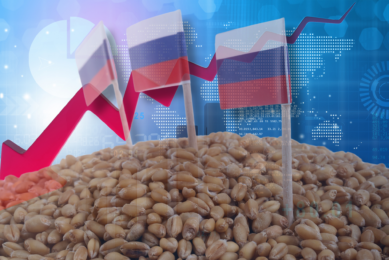Fefana meeting: Rabobank gives update on crisis

At the Fefana General Assembly of Members held in Brussels on 10 June 2009, Nan-Dirk Mulder from the Rabobank’s Food and Agribusiness Research and Advisory Department spoke about the effects of the credit crunch on the feed industry.
Nan-Dirk Mulder, accompanied by his colleague Dirk Jan Kennes, made a complete and well illustrated presentation entitled “Global overview of the impact of the financial crisis on the animal protein industry and subsequently the feed”.
Who will survive
Mulder raised the following question: which companies will survive in the current financial crisis context and prosper in the aftermath of this crisis? He structured his presentation in five main chapters: the consolidating global meat industry, the impact of the financial crisis, winners in time of recovery, long-term drivers for growth and conclusions for the future.
Restructure and expand
He explained that a positive long-term meat demand potential remains for global industry, but with a temporary slowdown. He also mentioned that, driven by long-term fundamentals, industry winners will start to restructure and expand in 2010, confidence and economic recovery being key factors. Mulder explained that dealing with volatility in feed ingredients and exchange rates will be a key challenge for the industry in the coming years. He focused also on the global meat industry being driven by Brazilian and US companies. “Europe is fragmented and does not seize opportunities in the large EU market”, he added.
Consolidate
His conclusion for the next 10 years during which global meat industry landscape will change significantly were clear: the European industry will have to consolidate in the next 5 to 10 years in order to keep track with much bigger international companies, main motives for mergers and acquisitions will be bargaining power, access to new growth markets, access to low-cost production and multispecies, and, finally, companies will have to focus either on scale or niche markets.
Related website:
Fefana











